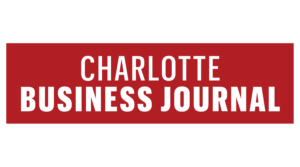
At a June 23 rally for the Neighborhood Assistance Corp. of America, Boston housing activist Bruce Marks gave Hugh McColl Jr. a door-knocker as a symbol of the group’s plans to keep pestering NationsBank Corp.
“I know one thing for sure,” McColl, bank chairman and chief executive, told the more than 1,500 people in attendance at Mount Carmel Baptist Church. “Bruce will come knocking.”
Given McColl’s avowed commitment to helping low- and middle-income workers become homeowners, however, it’s unlikely that NACA will have to use the device.
The ambitious, publicity-savvy bank has thrown its arms around Marks and his 2-year-old group, despised by many bankers for its confrontational style. The bank is putting up $500 million for NACA’s program, which offers first-time home buyers mortgages with no down payment or closing costs. NationsBank plans to back NACA efforts in Charlotte, Atlanta, Baltimore and Washington.
“It’s no secret that in some bankers’ circles, Bruce Marks is about as welcome as a dentist making house calls,” McColl said at the rally. “But when Bruce and I met for the first time (Oct. 2), we realized right away that we shared an important goal: To give every American the opportunity to own a home.”
The church rally was the kickoff of NACA’s efforts to help hundreds of low- and moderate-income Charlotte residents become homeowners.
The group, which had threatened to organize protests against NationsBank, a 1996 Olympics sponsor, at the Atlanta Games, is an outgrowth of the Boston office of the Hotel and Restaurant Employees Union. While McColl was dressed in suit and tie, Marks and other NACA organizers wore yellow T-shirts at the rally that read, “Stop the Loan Sharks.”
But Marks proceeded to heap lavish praise on NationsBank.
“(McColl) said something that we’ve never heard before,” Marks said. “He said, `When I want to do something, I want to be the biggest and the best at it.'”
At an average loan of $75,000, the $500 million pledge equates to about 6,666 loans. If the program works, NationsBank pledges more money.
Rather than fight NACA’s efforts, McColl sent several bankers last fall to Marks’ headquarters. Impressed with the group’s approach and accountability, NationsBank jumped on board, announcing its Charlotte plans in December. The local office, in a former real estate office near Eastland Mall, opened in early June to plan the rally.
Neither Marks nor bank officials would say how much money the bank is paying NACA to start up in Charlotte. Stanley Wilson heads the local office, which will have about six employees. NACA will receive some real-estate commissions by representing program applicants.
NationsBank likes NACA because its “results-oriented” approach combines credit and financial counseling with mortgage loans, spokeswoman Jan Boylston says. The bank remains committed to its other housing-oriented ventures with the Urban League, National Association for the Advancement of Colored People and other groups, she says.
NACA has made more than $100 million in loans and operates in seven cities with plans for eight more in the next year, Marks says. The program targets working people who don’t have enough money for the 5% to 10% down payment usually required for mortgage loans.
Seven other big banks are also helping finance NACA efforts, including First Union Corp., which is supplying $100 million in mortgages in South Carolina and Georgia. The eight banks together have pledged $1 billion to NACA.
In Atlanta, about 30 loans averaging $75,000 have been made since the program started in February.
Officials declined to state their Charlotte numerical goals, although the rally produced about 1,000 applications, Marks says. “We want to get into a house and this sounds like a good deal,” said Charlottean Isaac Montgomery after attending the meeting.
While the banks are putting up the money, Wilson and Marks emphasize that NACA sets the lending policies. If a bank doesn’t make enough loans to satisfy NACA, the group will vocalize its disapproval, they said.
Delinquencies won’t be a problem, insists Marks, 41, who has a master’s degree in finance from New York University and worked for the Federal Reserve Board in New York before forming NACA. “People will do everything humanly possible to keep their homes because they know this is a once in a lifetime opportunity,” he says.